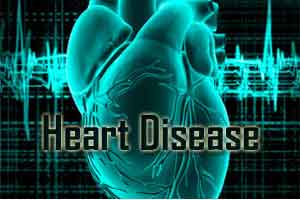- Home
- Editorial
- News
- Practice Guidelines
- Anesthesiology Guidelines
- Cancer Guidelines
- Cardiac Sciences Guidelines
- Critical Care Guidelines
- Dentistry Guidelines
- Dermatology Guidelines
- Diabetes and Endo Guidelines
- Diagnostics Guidelines
- ENT Guidelines
- Featured Practice Guidelines
- Gastroenterology Guidelines
- Geriatrics Guidelines
- Medicine Guidelines
- Nephrology Guidelines
- Neurosciences Guidelines
- Obs and Gynae Guidelines
- Ophthalmology Guidelines
- Orthopaedics Guidelines
- Paediatrics Guidelines
- Psychiatry Guidelines
- Pulmonology Guidelines
- Radiology Guidelines
- Surgery Guidelines
- Urology Guidelines
Cancer therapy during childhood linked to enhanced risk of heart diseases later

Cancer therapy during childhood linked to an enhanced risk of heart diseases later. Heart diseases studied included Heart failure, coronary artery disease, arrhythmias, valve abnormalities, cardiomyopathy, heart failure and pericardial disease.
According to new research published in the American Heart Association's journal Circulation, survivors of childhood cancer have a higher risk of developing a range of heart disease due to cancer therapy.
The highlights of the study are-
- Survivors of childhood cancer have higher risk of developing various types of heart disease due to cancer therapy, compared to peers who are cancer-free.
- Most studies of this survivor group have focused only on heart failure as a result of cancer therapy.
Researchers found that, even at relatively young ages, childhood cancer survivors have up to a threefold increase for any cardiac event and up to a tenfold increased risk for heart failure when compared to their cancer-free peers. Additionally, survivors exposed to higher doses of anthracycline chemotherapy, as well as those diagnosed with diabetes, hypertension or both, are significantly more likely to experience heart disease as adults.
“While anthracycline chemotherapy may induce heart disease, many patients require this cancer treatment to survive,” said Paul Nathan, M.D., M.Sc., senior author of the study and staff oncologist in the division of hematology/oncology and senior associate scientist in the Child Health Evaluative Sciences program at The Hospital for Sick Children (SickKids) in Canada.
“Doctors should address heart disease risk factors – such as diabetes and hypertension – that can be modified,” said Nathan, who is also a professor in the paediatrics and health policy, management & evaluation departments at the University of Toronto.
Childhood cancer survivors appear to have a higher likelihood of metabolic conditions such as diabetes, hypertension and unhealthy levels of one or more kinds of lipid (fat) in the blood. These modifiable risk factors appear to interact with chemotherapy or radiation that may be toxic to the heart, prematurely age the heart and accelerate the development of heart disease.
“The close connections between lifestyle, metabolic disorders and cardiac disease warrant careful follow-up and monitoring of the childhood cancer survivor population,” Nathan said.
Researchers used the Pediatric Oncology Group of Ontario Networked Information System (POGONIS), a provincial pediatric cancer registry, to identify five-year cancer survivors who were diagnosed before age 18 and treated in a pediatric cancer center between 1987 and 2010. Each childhood cancer survivor was matched to five cancer-free peers for the purposes of this comparative study. During an average of 10 years of follow-up, nearly 3% of childhood cancer survivors experienced one or more cardiac events, compared to less than 1% of those without cancer.
Researchers were unable to assess lifestyle factors such as smoking, physical activity, diet and alcohol use. A more comprehensive understanding of these and other modifiable factors and their impact on cardiovascular disease among childhood cancer survivors could be gained through future work involving the use of data from multiple sources.

Disclaimer: This site is primarily intended for healthcare professionals. Any content/information on this website does not replace the advice of medical and/or health professionals and should not be construed as medical/diagnostic advice/endorsement or prescription. Use of this site is subject to our terms of use, privacy policy, advertisement policy. © 2020 Minerva Medical Treatment Pvt Ltd